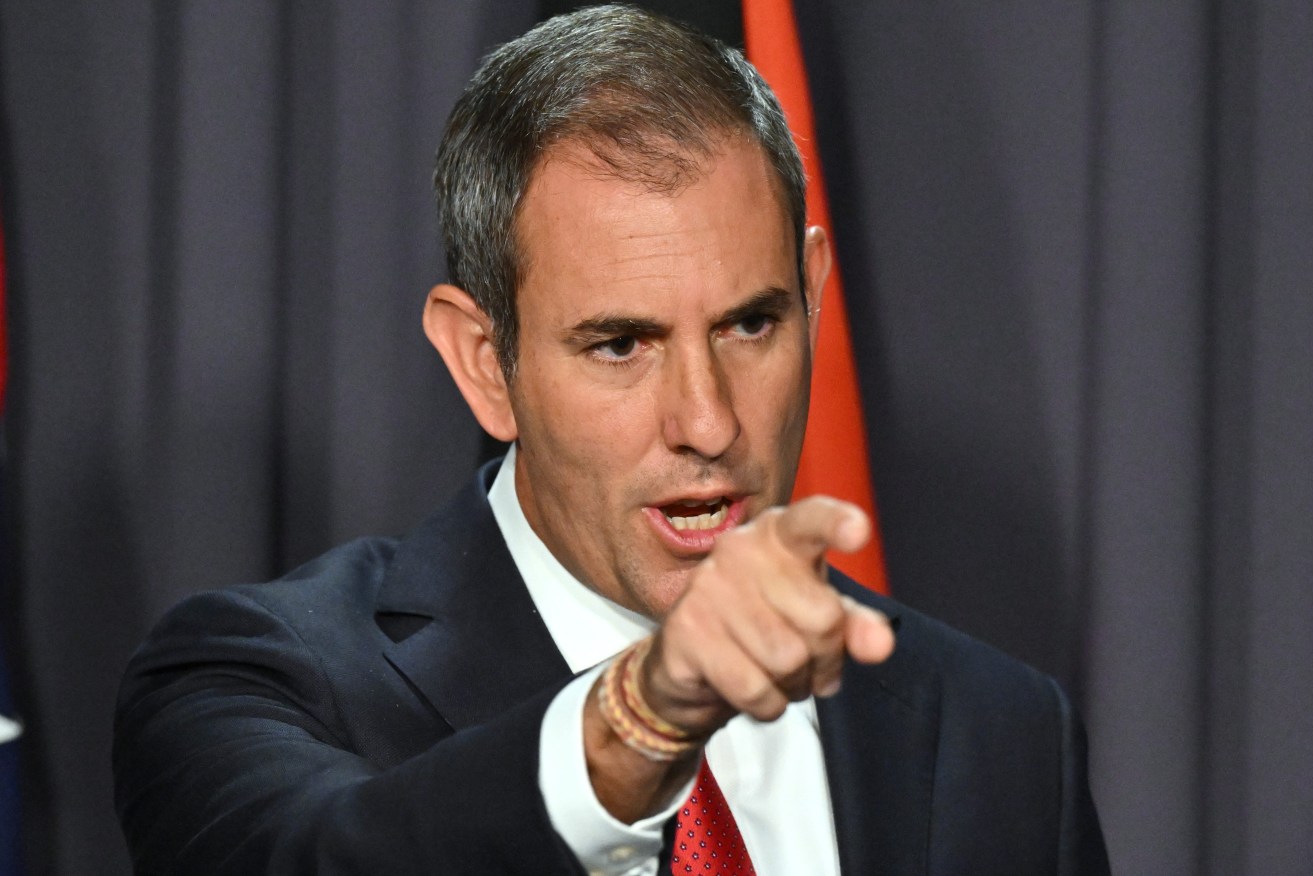World of pain: Global growth figures a ‘blunt warning’ about woes ahead: Chalmers
A “blunt warning” from the World Bank on slow growth levels should serve as a wake-up call on economic complacency, the treasurer says.

Treasurer Jim Chalmers. (AAP Image/Mick Tsikas)
The international monetary body has foreshadowed the first half of the 2020s will have the worst levels of growth for the global economy in 30 years, slowed by high energy prices and conflict in Ukraine and the Middle East.
Ahead of November inflation data for Australia being released on Wednesday, Treasurer Jim Chalmers said the economic forecast from the World Bank was a stark reminder.
“This kind of blunt warning from the World Bank is welcome, we can’t be complacent about the conditions we confront,” he told ABC Radio on Wednesday.
“Our job in Australia is to make this not a lost decade but a defining decade to modernise our economy and maximise our advantages.”
Inflation figures from the Australian Bureau of Statistics will be first in a decisive month of data ahead of the next interest rates decision.
Core inflation, which excludes food and energy prices, climbed 5.3 per cent in October.
While Wednesday’s inflation figures will set the scene for 2024, they are likely to be overshadowed by the December quarter CPI release on January 31.
“Inflation is moderating, though not as fast as we would like,” Dr Chalmers said.
“We’ve delivered the first budget surplus in 15 years and there’s a second one in prospect, and all of these things put us in better stead to confront this global economic uncertainty which has been outlined so starkly in the World Bank report.”
Heavy discounting during the holiday sales period is also expected to have contributed to a slowdown in inflation.
Black Friday and Cyber Monday sales events are tipped to have resulted in outright price declines for goods such as garments, household products, audio-visual and computing equipment, CBA economist Stephen Wu said.
Consumers held off on spending in October to take advantage of the discounts amid rising cost-of-living pressures, with retail sales turnover rising two per cent in November, following a 0.4 per cent drop the month before.
Fuel prices also decreased in November, while continued growth in rent prices and elevated services inflation are expected to offset the slowdown.
“Wednesday’s release will include an update on market services price inflation that was not available in October,” Mr Wu said.
“This will confirm the degree to which inflation remains a ‘homegrown and demand-driven’ issue, to use RBA governor Michele Bullock’s words back in November.”
Mr Wu expects the ABS data to show a 4.4 per cent rise in prices for the year to November, a touch softer than consensus estimates of 4.5 per cent, after inflation came in at 4.9 per cent the previous month.
Any decrease would bring monthly inflation back to its lowest level since January 2022.
IG markets analyst Tony Sycamore says a drop below five per cent in core inflation would confirm the rates market, which has priced in two Reserve Bank rate cuts in 2024, is on the right track.












